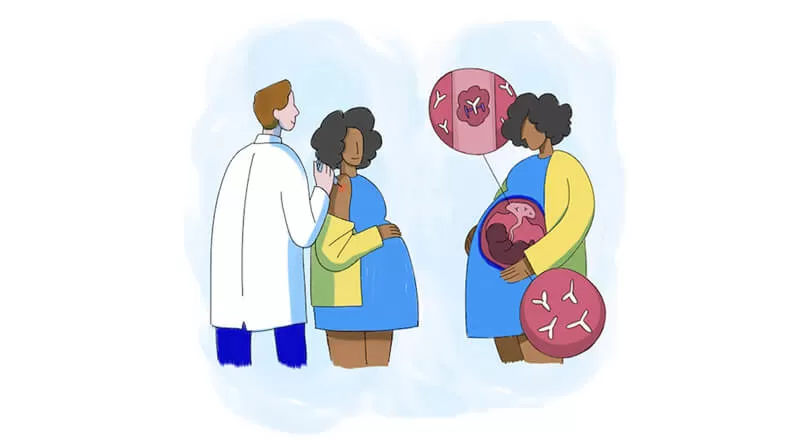Maternal Immunization Articles
Featured Articles
Read our latest stories on the people and scientific innovations making a difference in patients’ lives.

Science & Innovation
The Next Frontier of Vaccine Innovation
Edward Jenner changed the world when he used cowpox virus to inoculate a young boy against smallpox.1 Less than 200 years later, smallpox was eradicated from the Earth.2 Dozens of vaccines have since been created, leading to dramatic improvements in public health as well as a marked decline in deaths due to diseases such as measles, pertussis (whooping cough), and tetanus. Imagine what Jenner would say if he knew that at least two vaccines now help prevent cancers!3 Or that the world’s...

Science & Innovation
How Maternal Immunization Works and Why It's Important for Your Child
The instinct to protect a baby starts when it's in the womb. Some of the most common ways a mother does this is through receiving regular prenatal care, taking prenatal vitamins, and prioritizing a healthy diet and rest. A less frequently discussed, but equally crucial, step that mothers-to-be can take is getting themselves vaccinated during pregnancy. Even a brief look at the history of maternal immunization reveals that the antibodies provided by vaccination can be one of the greatest gifts a...

Science & Innovation
Maternal Immunization: Protecting Children from RSV and GBS
In the first few months of their lives, infants experience new sights, sounds, scents, and textures. During this time, they also make contact with new organisms. It takes up to three months for portions of infants’ still-developing immune systems to mature.1 During these early weeks and months, infants are too young to receive their first vaccines, leaving them vulnerable to developing serious infections.2Most pregnant people transmit antibodies to their developing fetuses naturally starting in...

Real People
New Podcast, ‘The Antigen,’ Takes a Deep Dive into the Story of Vaccines
When we decided to create a podcast about vaccines, Yasmeen Agosti, MD was a natural choice to host . For many years, vaccines have been an enormous part of Agosti’s life, first as a pediatrician, now as the global medical affairs lead for viral vaccines at Pfizer. In our new audio series, called “The Antigen,” she delves into in the fascinating world of immunization, exploring the science and story behind vaccines, the rise of the anti-vaccination movement and the many social, cultural and...

Group B Strep: A Dangerous Infection in Infants and Adults
Despite advances in treatment and prevention, Group B strep continues to be the leading cause of dangerous infections in newborns, pregnant mothers and adults. An estimated 10% – 30% of pregnant women in the U.S. carry Group B streptococcus (GBS), bacteria that live in the intestine, vagina and rectum, and usually show no symptoms. During childbirth, however, the situation can change. Colonized mothers can pass GBS via amniotic or vaginal fluids to their babies causing infections which may...
Media Resources & Contact Information
Anyone may view our press releases, press statements, and press kits. However, to ensure that customers, investors, and others receive the appropriate attention, Pfizer Media Contacts may only respond to calls and emails from professional journalists.
